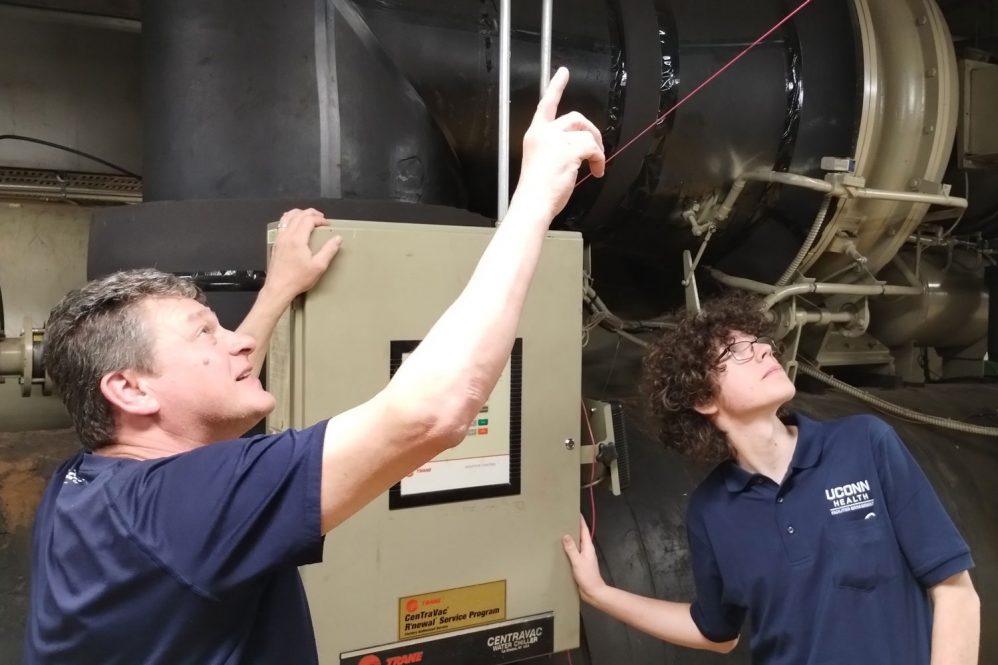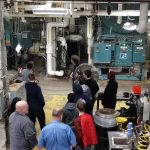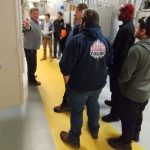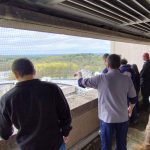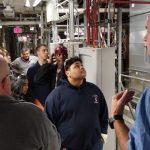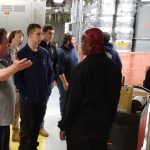One of the newest trainees at UConn Health is neither a medical student, dental student, resident, nor fellow.
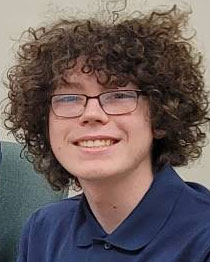
He’s an aspiring heating, ventilation, and air conditioning technician.
Paul Stepka, 16, of Farmington, a junior at E.C. Goodwin Technical High School in New Britain, is UConn Health’s first pre-apprentice under the Connecticut Technical Education and Career System’s Work-Based Learning program.
“We are a teaching entity, an educational facility, and so not only are we teaching medical students and dental students, but we’re also teaching our future trade workers,” says Eric Kruger, UConn Health’s vice president for facilities development and operations.
Recognizing a shortage of electricians, plumbers, and HVAC technicians in today’s workforce, UConn Health is now a sponsor with the Department of Labor, and is partnering with Goodwin Tech and A.I. Prince Technical High School in Hartford to provide work-based learning experiences.
“We can train skilled trade apprentices and pre-apprentices to eventually become licensed journey people.” Kruger says.
Sometimes referred to collectively as qualified craft workers, they require a journeyman’s license from the state, obtainable after 8,000 apprenticeship hours and successful competition of a licensing exam.
“I find HVAC really interesting because it’s a lot of different stuff combined, a lot of plumbing, a lot its own stuff, and then there’s carpentry that you’ll do,” says Stepka, whose first day at UConn Health was Monday. “I’m really looking forward to learning a lot more about HVAC by being actually on-site.”
His mentor is Chris Linnhoff, who’s been with UConn Health for 18 years, the last 12 as an HVAC supervisor.
“He’ll be working with all of the guys, we’ll take him to different jobs,” Linnhoff says. “We have air conditioners, heaters, refrigerators here. He’ll be working on a lot of different equipment. He’ll be shadowing our techs, see what they’re doing, and he could ask questions and we’ll explain what we’re doing. We’ll start with maintenance, and repairs will come later.”
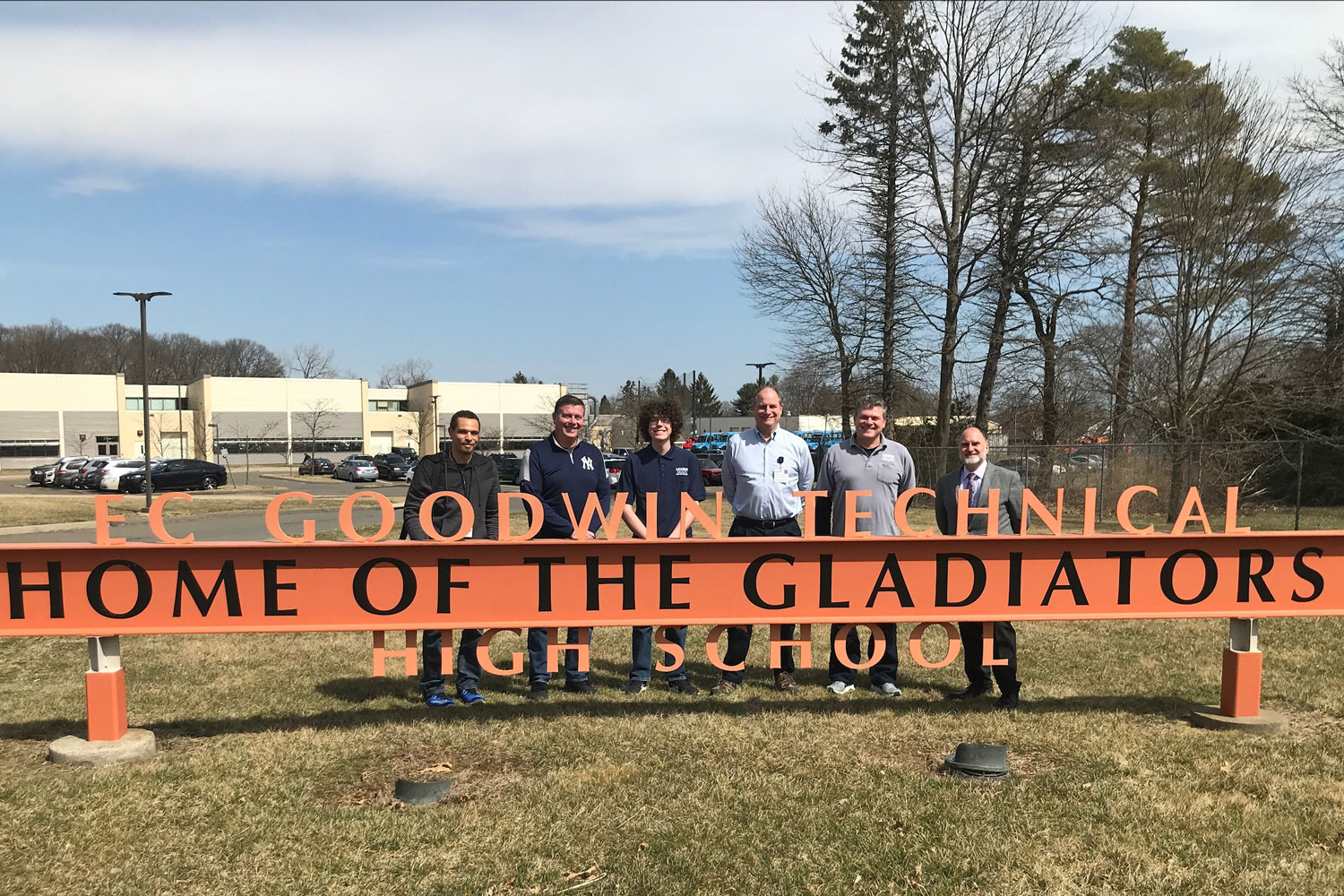
For the rest of his junior year, Stepka will work two days a week at UConn Health. He can work more during the summer, then as a senior he’ll alternate two-week intervals as a pre-apprentice at UConn Health and a high school student at Goodwin.
“It’s going to be great for him,” Linnhoff says. “He’ll have a lot of experience in big, heavy commercial HVAC. You get school training, but you need hands-on training, and that’s what he’s going to get here.”
Kruger, who led UConn Facilities and Operations in Storrs before joining UConn Health in 2022, implemented a similar work-based learning program in Storrs.
The idea is to open a pipeline from trade school to potential employment at UConn Health, while in the process providing hands-on experience to the next generation of tradespeople.
“What we’re finding about the available workforce out in the trades right now is, it’s tough to fill some of these positions,” says Ray Bennettson, assistant director of facilities management and operations. “There are not a lot of unemployed trade people.”
The aim is to have other students, from both Goodwin Tech and Prince Tech, follow Stepka into UConn Health’s work-based learning program, with as many as six pre-apprentices rotating in by next school year. A group of HVAC students from Goodwin Tech is scheduled to visit UConn Health April 19.
Growing a skilled trades workforce in Connecticut has been one of the priorities for Gov. Ned Lamont.
Pre-apprentices start at minimum wage. The experience in this program is certain to be a consideration when graduates of the program become licensed professionals seeking full-time work at UConn Health, where many qualified craft worker positions today start with annual salaries exceeding $60,000 (plus state benefits).
